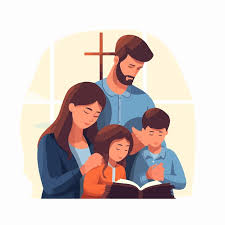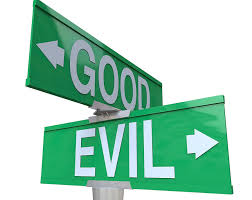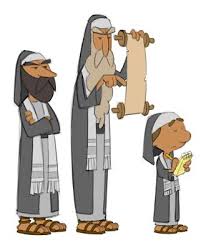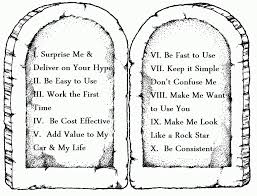Romans 3:1 – Then what advantage has the Jew? Or what is the value of circumcision?
In chapter one, Paul documents the wickedness of the Gentiles. In chapter two, he documents the wickedness of the Jews, which actually surpassed that of the heathen. He proves to the Jews that all of their external advantages (possession of the law, circumcision, the feasts, etc.) were utterly insufficient to justify them in the sight of God. 
Paul knows full well that his discourse will outrage the Jews because it effectively strips them of all their peculiar honors and privileges. He can correctly anticipate the arguments the Jews will raise, because he himself was Jewish and because he had already heard them from other Jews in other cities.
Therefore, Paul pens chapter three in the form of a dialog or discussion. He raises the exact questions he knows his readers would ask if they were present with him, and then he proceeds to answer them.
The first obvious question/objection of the Jews would be this: If physical circumcision avails nothing and inward circumcision of the heart is everything; if an uncircumcised person who keeps the law is treated as circumcised, then what advantage is there in being a Jew? What is to be gained by outward circumcision? Was there any real value in the old covenant at all?
This is a serious objection because if there was no value in the advantages of the Jews, then God is not who he claims to be.
If there was no value in circumcision, the law, the Jewish rites, etc., then instead of giving his people a true gift/advantage as he claimed, God really gave them nothing at all. His promises were hollow. Consequently, instead of being faithful, generous and true, God is shown to be a deceiver and a cheat who cannot be trusted.
Of course, we are well aware that God is NOT a deceiver or a cheat. He is perfect, holy, just and righteous at all times. Therefore, we can be sure the advantages/privileges of the Jews DID have value and purpose. This is exactly what Paul tells us in verse two.
Romans 3:2 – Much in every way. To begin with, the Jews were entrusted with the oracles of God.
GENERAL SUMMARY: Did the Jews have advantages over the Gentiles? Absolutely! The chief or most valuable of all the Jews’ advantages was having the ‘oracles’ of God. So valuable was this advantage, that even if it was the only one the Jews enjoyed, it would prove they were blessed over all other nations.
DIGGING DEEPER: Let’s begin by defining the word ‘oracle’. It is defined as the communications, revelations and messages delivered by God to mankind.
These oracles provided rules and guidelines for daily living. They spoke of what was going to happen in the future. They served as the final source in answering questions, resolving doubts and ending controversies.
To the Jews of Paul’s day, ‘oracles’ meant the entire Old Testament - the law, the prophets and the Psalms. These divine books contain the mind and will of God; they are his infallible word. Through them the Jews had not only the commands of the law, but the promises and predictions of grace, forgiveness and salvation which would flow through the Messiah.
Furthermore, the rites, festivals and other aspects of the Jewish religion bore witness to the laws of God through sight, sound, action, and to some degree through smell (incense, burnt offerings, roasted Passover lamb, bitter herbs, etc). They too revealed the promises of grace and salvation which would eventually be revealed by Messiah.
What an obvious benefit/privilege this was! Because they had the law, the Jews had a clearer and more distinct knowledge of God than the Gentiles could ever have discovered by the light of nature.
For hundreds and hundreds of years, they alone had the opportunity to know God’s commands, to live by them, and thus to prosper physically, mentally, spiritually, relationally and financially. There can be no doubt that God’s law enlightens the mind/spirit, feeds the soul, sweetens one’s daily existence, and infuses life with hope and joy! What a blessing!
It was a blessing for the Jews to be the repository of God’s laws. But their blessings didn’t end there. They were also blessed to dispense this knowledge to the rest of the world. Plus, they were the nation through which Jesus Christ the Messiah, the Redeemer of mankind, came into the world!
Romans 3:3 – What if some were unfaithful? Does their faithlessness nullify the faithfulness of God?
GENERAL SUMMARY: Paul has just shown that the divine revelations of God were unquestionably an advantage or privilege to the Jews. But he now anticipates a further possible objection on their part. It goes something like this:
Paul already stated that some Jews were just as guilty before God as some Gentiles and they would be condemned on the day of judgment. If the unbelief/unfaithfulness or disobedience of some of the Jews resulted in the promises of God being void for all of Israel, then the Jews were still in the position of being no better off for having the oracles of God. 
Paul deals with this objection by proving to the Jews that the unfaithfulness/unbelief of some people does not have the power to nullify the eternal promises of God to those who embrace and believe them.
DIGGING DEEPER: First off, our translation (English Standard Version) uses the word ‘unfaithful’. The King James Version uses the word ‘unbelief’. Both are good translations and can be used interchangeably.
Now let’s examine the viewpoint of the Jews. It was an indisputable fact that God had chosen Israel as his people. It was also indisputable that he entered into a covenant with them. In their minds, this implied that ALL Jews would be kept from damnation on the day of judgment. In other words, based on God’s covenant with their forefathers, they believed that all Jews would be saved.
However, in Romans chapter two, Paul reasons that in certain respects the Jews were on the same level as the Gentile/heathen nations. Specifically, they (or at least some of them) failed to believe and obey God. Consequently, since they sinned, they would be subject to judgment, just like the heathen. This leads the Jews to again ask the question, ‘Of what value was the promise of God? Has it not become null and void for the nation?’
Again, we have a very serious implication here. According to the thinking of the Jews, if they were unfaithful/disobedient and thus condemned, then one of two things had to be true: Either God neglected to keep his promise to the nation of Israel or that God made a promise he was incapable of keeping.
If God neglected to keep his promise, then he was unfaithful, unreliable and could not be trusted. If he was incapable of keeping his promise, then he was powerless, weak and clearly not sovereign.
Obviously, we know these allegations are completely false. God is faithful, reliable and trustworthy. In fact, right at this moment, we are depending on him for our very next breath! Furthermore, we know that God is, without question, sovereign over the universe.
We find that Paul responds to the possible objections of the Jews by asking them two additional questions.
Question one: ‘What if some Jews were unfaithful?’ (Your translation may say, ‘What if some Jews did not believe?’).
First, let’s address the word ‘some’. This word does not reveal an exact number. Bible commentators believe Paul meant most if not all the Jewish population, but that was another hard pill to swallow, so for the sake of argument, he simply says ‘some’. (The outcome of his argument is the same, regardless of the number of unbelievers.)
More importantly, Paul is ready to allow that there were at least some Jews who were unfaithful to the oracles of God. In other words, they did not strive to adhere to the laws; they were disobedient to the commands of God.
Paul is also ready to allow that there were at least some Jews who did not believe in God’s promises, particularly the prophecies pertaining to the Messiah. (This, of course, led to a disbelief in Jesus as the Messiah when he eventually came to earth as promised.)
Question two: Does their faithlessness and/or unbelief nullify the faithfulness of God?
Thankfully, the answer is a resounding NO:
Hosea 2:19-20 – And I [God] will betroth you [Israel] to me forever. I will betroth you to me in righteousness and in justice, in steadfast love and in mercy. I will betroth you to me in faithfulness. And you shall know the Lord.
God is always faithful to his promises and covenants, regardless of what individual people do.
Think of it this way: God is both sovereign and omnipotent. This is important because it means that he is dependent on NOTHING. He is not dependent upon the decisions or actions of anyone or anything in order to function or accomplish his will. He can do whatever he deems appropriate at any and all times, because he has all the power, ability, resources and authority to do so. That’s just who he is.
People can (and do) rebel against him, but that does not affect him in any way. All that does is place the rebel into bondage under Satan.
There will always be some faithless people who choose to live in unbelief. For these people, there is no benefit to having the oracles of God, because his blessings and promises can only be appropriated by faith.
The important thing is that the unbelief/lack of faith of some people does not nullify the faithfulness of God. He continues to be perfectly faithful to all his promises and covenants, at all times and under all circumstances. His word stands forever:
Isaiah 40:8 – The grass withers, the flower fades, but the word of our God will stand forever.
Therefore, those who believe and have faith in his promises will certainly reap the benefits of them. Thus, Paul shows that the Jews did not have to worry that some of them would be condemned because of the unbelief of others. For these people, the oracles of God were a very great advantage/privilege.
Romans 3:4 – By no means! Let God be true though everyone were a liar, as it is written, “That you may be justified in your words, and prevail when you are judged.”
GENERAL SUMMARY: The faithfulness of God is so far from being nullified by the deceitfulness and unfaithfulness of man, that man’s unfaithfulness actually makes God’s truth and faithfulness even more evident.
DIGGING DEEPER: Let God be true, though everyone were a liar: Paul is still challenging the Jewish idea that all Jews would be saved, simply by virtue of being Jews.
He begins his argument by declaring that first and foremost, the veracity (habitual observance of truth; truthfulness, honesty, integrity) of God was a principle to be tightly held. Any doctrine, teaching or idea that contradicted that premise should immediately be abandoned. 
Of course, Paul included himself in this view. Every opinion or doctrine that came from him (even those found in the letter to the Romans) was also to be discarded if it was not consistent with the principle of God’s truthfulness.
The logical corollary is that in every case where a difference exists between what God says and what man says, we can be sure that God is telling the truth and man is lying.
Have you ever heard the saying, ‘the truth hurts?’ The meaning is that there are some truths mankind does not want to face, because they are opposite of our own views and opinions. In these cases, to accept what is really true is painful to us.
That old saying would apply to this scenario. When God is credited as being faithful and true above all else, mankind is forced to accept the truth, even if it differs from our own views/ideas and even if we find it painful.
For example, God says that marriage is a life-long covenant between one man and one woman. All sexual activity is to be limited to you and your spouse.
This is a truth that most people (including some Christians) today don’t want to recognize. They have all kinds of excuses for engaging in adultery, fornication, homosexual acts, pornography and other sexual perversions. In their own minds, they have justified every sexual sin imaginable. Culture and society also give their approval to these actions.
In this difference between God and man, man must accept that God is correct/truthful and he is wrong; his version of the ‘truth’ is really a lie.
Here’s how this concept fits into the current topic: The Jews were under the impression that all of them would be saved, because they were the chosen people of God. They thought that having the oracles of God guaranteed their justification. Paul refutes that claim. He shows that in some ways the Jews were just as wicked as the Gentiles, and both groups would be treated the same on the day of judgment. This was a painful truth the Jews did not want to face.
So, Paul goes on to prove that the truthfulness and faithfulness of God were wholly consistent with the fact that some Jews would be found unfaithful and be condemned on the day of judgment. Paul does not go into great detail on this topic, but it isn’t all that difficult to understand.
The promises made to Abraham did NOT maintain that all of the Jews would be unconditionally and absolutely saved. The covenant implied that the Jews were to be obedient and if they were not, they would not receive the promises:
Genesis 18:19 – For I [God] have chosen him, that he may command his children and his household after him to keep the way of the Lord by doing righteousness and justice, so that the Lord may bring to Abraham what he has promised him.
And of course, it doesn’t take much research to see that the Jews were unfaithful to God many times in their history.
So, painful as it may be, the fidelity, faithfulness and truthfulness of God are completely consistent with some part of the Jewish nation being rejected and lost.
As it is written: Paul continues his discourse with a reference to Psalms 51, which was penned by King David after he had sinned and been confronted by the prophet Nathan:
Psalms 51:4 – Against you, you only, have I sinned and done what is evil in your sight, so that you may be justified in your words and blameless in your judgment.
Let’s refresh our memories of that situation, which is found in II Samuel 12:1-15. David should have been leading his troops in war, but instead he remained in Jerusalem. One night he saw a beautiful woman bathing on the rooftop. He ended up sending for her and they slept together. Thus, David committed adultery with Bathsheba, the wife of Uriah the Hittite.
Later, when David found out that she was pregnant, he did a number of sleazy things to cover it up. When none of them worked, he sent a note to the commander of the army and ordered that Uriah be put into the most dangerous part of the battle, and when the battle was fierce, the other army men were to draw back from him, so he would be slain (II Samuel 11:14-17).
Needless to say, God was not pleased. He eventually sent Nathan the prophet to confront David and expose his sin. David composed Psalm 51 after his confrontation with Nathan.
Paul uses this scripture to make a couple of important points. 
His first point is that sin does not negate the truth and faithfulness of God. Long before the incident with Bathsheba, God made a promise to David that one of his own sons would sit upon his throne and that eventually the Messiah would come through his line as well (II Samuel 7:12-17). And of course, we know this is true. Solomon, son of Bathsheba, became king in David’s place and eventually Jesus was born of the house and lineage of David (Matthew 1:1-16).
Though David was weak and sinful, yet God was true and faithful to every single word of promise that he had sworn to him. Thus, the Jews could rest assured that (as we already noted), the unbelief/lack of faith of some people does not nullify the faithfulness of God. He is always perfectly faithful to all his promises and covenants, at all times and under all circumstances. His word stands forever.
That you may be justified in your words: The meaning is that God should be regarded as just and righteous when he judged David for his sin. This does not mean that David sinned for the purpose of justifying God, but that once David was confronted by Nathan, he recognized that his sin was so blatant and so wicked, that God was right in his sentence of condemnation.
In the same way, the Jews should recognize that their sin against God was also blatant and wicked and that God will be righteous and just in condemning them at the end of the age.
And prevail when you are judged: In a court of law, if one was accused and acquitted or accused and found innocent, we might say they prevailed or overcame. This is the sense in this passage. Mankind will accuse God of being unfair or unrighteous, but if the question of God’s unfairness were brought to trial, God would overcome – he would be found pure and righteous in his condemnation of David’s crime.
The overall meaning is that God is to be regarded as right and just in condemning men for their sins and any person who has a correct understanding of God will know this to be true, even though he himself stands condemned.
Again, Paul is establishing a fixed, unwavering principle that God is right and true, regardless of the consequences, regardless of what doctrines must be abandoned and regardless of who is proved to be a liar by it. This substantiates the truth Paul revealed in the prior verse. Namely, the truth and faithfulness of God are not negated by the apostasy or deceitfulness of man.
Now Paul will make his second point. Namely, that the sin of mankind accents or highlights or calls attention to the faithfulness of God. This was David’s overall thought behind Psalms 51:4. God certainly had every right to drop the promises made to David because of his gross sin, but instead God is faithful to do what he said he would do.
Thus, God in his amazing providence, is capable of eliciting praise of his own righteousness even from the sins of man. God is worthy of praise in all his judgements, regardless of the complaints of mankind.
In the end, the Jews must face the truth of scripture: God’s promises to Abraham did not guarantee that all Jews would be saved. The scripture clearly shows that the Jews were to be obedient and if they were not, they would not receive the promise of justification. The Jews will not be saved for mere possession of the oracles of God; the promises must be embraced by faith.
Let me offer you some encouragement:
The Jews derived immeasurable blessings and advantages by having the oracles of God. And yet, those of us living under the new covenant in the age of grace have even more!
Under the old covenant, the only people who were anointed for service to God were prophets, priests and kings. They had an amazing advantage which the common person would never receive.
But now, under the new covenant of grace, ALL Christians (male and female, young and old, white and black, slave and free) are anointed for service to God by Holy Spirit.
Holy Spirit is the constant companion of the Christian. He gives us spiritual gifts for the edification of the church. He leads and guides us along the path we are to walk. He grows spiritual fruit in our lives. He reveals the word of God to us, increasing our understanding. He empowers us to witness for Christ. He assists us in praying for breakthroughs when we don’t know how to pray. He leads us in spiritual battle against our enemies.
There is no advantage like Holy Spirit! I encourage you to get to know him in a greater way; begin to live your life in such a way that you are depending upon him instead of your own strength and wisdom.
Let me offer you some relief:
Later in this chapter of Romans, Paul will conclude that all of us have sinned and come short of the glory of God (Romans 3:23). Obviously, this includes you and me.
Satan would love to hold our mistakes and failures before us all the time and make us think that we are now ineligible for God’s blessings. But as we saw in today’s post, that is a lie!
When he reminds you of a mistake, do what king David did – acknowledge your sin, repent, and give God glory that your mistake does not nullify the promises of God in your life!
Let me offer you some strength:
In today’s post Paul points out that the unbelief of one person does not have the power to nullify the promises of God to another person.
For example, if your cousin refuses to believe that God still heals people, their unbelief will keep them from obtaining the blessing of healing. However, their viewpoint does not make that promise void for you – or does it?
If you listen to your cousin’s viewpoint time after time and never say anything to challenge them, you may just start believing what they say. The reason for that is that whatever you allow to stay in your mind will eventually take root in your heart, whether it be good or evil.
So instead of allowing that lie to go unchallenged in your mind, you need to search the scriptures and prove to yourself that God’s promise of healing is TRUTH and your cousin’s word is a lie.
As Christians, we must constantly guard the doors of our hearts and minds so we don’t leave any openings for the enemy to come into our lives!




 om line is that acceptance by God does not depend on man’s external privileges but on the state of his heart and life. Any person, Gentile or Jew, who believes in Christ and trusts in him alone for salvation, will be treated as righteous, regardless of whether he is circumcised in the flesh or not. All such followers of Christ will then willingly circumcise their hearts, minds and actions to conform to God’s holy laws.
om line is that acceptance by God does not depend on man’s external privileges but on the state of his heart and life. Any person, Gentile or Jew, who believes in Christ and trusts in him alone for salvation, will be treated as righteous, regardless of whether he is circumcised in the flesh or not. All such followers of Christ will then willingly circumcise their hearts, minds and actions to conform to God’s holy laws. 
















 between two people when at least one of them is married to someone other than their partner.
between two people when at least one of them is married to someone other than their partner. 
 been understood that every oath/covenant was made in the presence of God. He was the witness to the agreement, and it was up to him to avenge misconduct. Even today, when a witness gives testimony in a court of law, they are ‘sworn in’, which alludes to the fact that God is listening to their testimony, and he will avenge any wrong that is done.
been understood that every oath/covenant was made in the presence of God. He was the witness to the agreement, and it was up to him to avenge misconduct. Even today, when a witness gives testimony in a court of law, they are ‘sworn in’, which alludes to the fact that God is listening to their testimony, and he will avenge any wrong that is done. 

 predetermined height, or type of hair, or eye color.
predetermined height, or type of hair, or eye color.  out their salvation with fear and trembling. All Christians should be seeking to crucify their flesh and walk in victory over sin/bondage on a daily basis. This includes the sins of homosexuality and lesbianism. So, you may find a homosexual in your congregation who is striving to overcome those influences and come into line with God’s will for his sexual life.
out their salvation with fear and trembling. All Christians should be seeking to crucify their flesh and walk in victory over sin/bondage on a daily basis. This includes the sins of homosexuality and lesbianism. So, you may find a homosexual in your congregation who is striving to overcome those influences and come into line with God’s will for his sexual life. 





